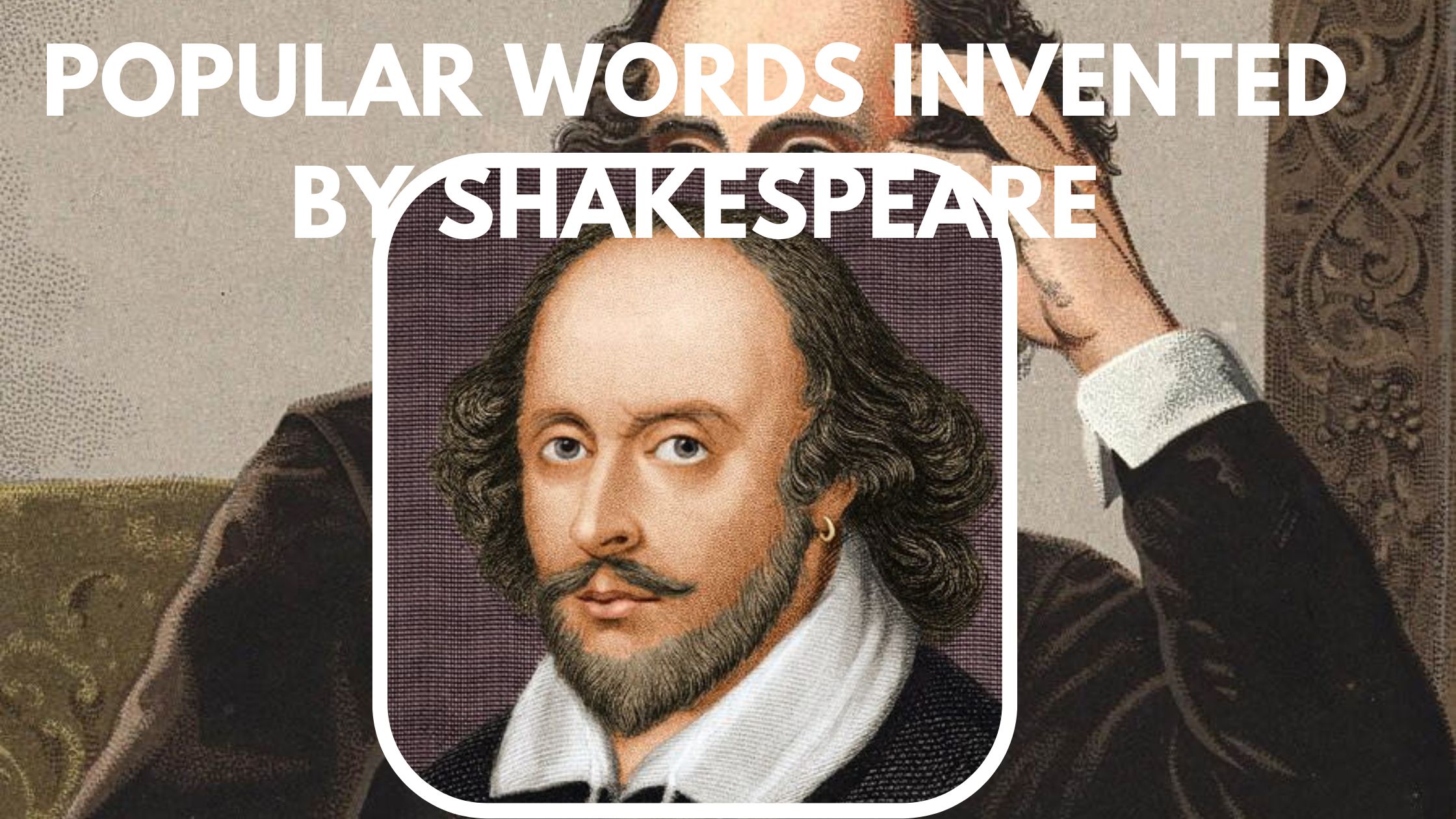Top Lists
Popular Words Invented By Shakespeare
William Shakespeare was an incredible writer and poet, he also single-handedly added more than 1,700 words to the English Language. While research suggests that Shakespeare might not have invented all those words and phrases, his works are likely the first time the terms were written down. This does not discount the fact that Shakespeare was a master of the English language.

William Shakespeare was an incredible writer and poet, he also single-handedly added more than 1,700 words to the English Language. While research suggests that Shakespeare might not have invented all those words and phrases, his works are likely the first time the terms were written down. This does not discount the fact that Shakespeare was a master of the English language.
Shakespeare’s use of language was unmatched 450 years ago with his sonnets and plays frequently debuting the new English Language he created. It didn’t take long for these terms to be adopted into the language and many of them are still in use today.
Here are 40 popular words and phrases you didn’t know Shakespeare invented — next time you use them, know you’re following in the footsteps of a true linguistic legend.
1. Addiction
While the concept of addiction has been around for centuries, the word “addiction” itself didn’t exist until Shakespeare coined it in his play, Othello.
2. All the world’s a stage
It means that life is like a performance and that we all play different roles which was spoken by Jacques in As You Like.
3. Bedazzled
Shakespeare uses the word “bedazzled” to describe someone who is overwhelmed by something that is sparkling or shining in his play, The Taming of the Shrew.
4. Generous
Shakespeare used the word “generous” in its modern sense to describe someone who is kind and giving in his play, Julius Caesar.
5. Critic
Although the concept of a critic had existed for centuries, the word “critic” wasn’t used in its modern sense until Shakespeare used it in his play, Love’s Labour’s Lost.
6. Eventful
In As You Like It, Shakespeare coined the word “eventful” to describe something that is full of events or occurrences.
7. Brave new world
This phrase is often used to suggest a sense of wonder and amazement at the possibilities of the future and was spoken by the character Miranda in The Tempest.
8. Eyeball
While the concept of an eyeball had obviously existed for centuries, Shakespeare was the first to use the word “eyeball” in his play, The Tempest.
9. Good riddance
The phrase “good riddance” is frequently used to suggest relief at the departure of someone or something unpleasant. It is spoken in Troilus and Cressida.
10. In a pickle
This phrase is used to suggest being in a difficult or uncomfortable situation. The Tempest: This phrase is spoken by the character Alonso in Act V, Scene I.
11. Lonely
Although the concept of loneliness had existed for centuries, Shakespeare was the first to use the word “lonely” in his play, Coriolanus.
13. It’s Greek to me
Used to suggest a lack of understanding or confusion about something, this phrase is spoken by the character Casca in Julius Caesar.
14. Manager
The word “manager” had been used in other languages before Shakespeare’s time, but he was the first to use it in English in his play, A Midsummer Night’s Dream.
15. Radiance
Shakespeare used the word “radiance” to describe something that is shining or glowing in his play, The Two Gentlemen of Verona.
16. Star-crossed lovers
This saying describes two people who are destined to be together despite the obstacles in their way and was first used in Romeo and Juliet in the Prologue.
to treat someone badly
29. Ode
a lyrical poem. If a boy likes a girl, he might sing her an ode, especially in movies.
30. Watchdog
a person or group that keeps a close watch to discover wrong or illegal activity
31. All that glisters is not gold
From his play “Merchant of Venice” We usually use this phrase after we discover that something that looks good turns out not to be that great, and substitute “glitters” for “glisters.”
32. As good luck would have it
In his play text “The Merry Wives of Windsor” This means something happened to you that was pure chance or luck.
33. Come what come may
In his play text “Macbeth” Whatever is going to happen is going to happen. You are accepting that fact.
34. Devil incarnate
In his play “Titus Andronicus” This describes someone that is evil and scheming like a reincarnation of the devil.
35. A laughing stock
In his play text “The Merry Wives of Windsor” To be a laughing stock is to be considered a joke by many people.
36. Wear one’s heart on one’s sleeve
In his play text “Othello” To be hopeless romantic (or be open and honest about how you feel) is to wear one’s heart on one’s sleeve.
37. What’s done is done
In the play “Macbeth” It is done, and there is no going back. You must simply deal with the consequences.
38. Break the ice
In the play “The Taming of the Shrew” Often when you meet someone for the first time, you “break the ice” by asking them polite questions about themselves.
39. Fair play
In the play “The Tempest” Follow the rules, especially in competitions or sports.
40. Pound of flesh
Play text “The Merchant of Venice” When this phrase is used it is talking about a cruel or unusual punishment.
More Articles on RNN
- Reasons Why Reading Classics Is Difficult
- Most Powerful Queens In African History (Top 10)
- TOP 10 Richest British Actors, And Their Net Worth
- Top 10 Most Expensive Books In The World (2023)
